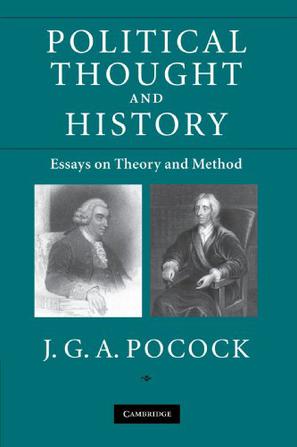-

Political Thought and History
The history of political thought : a methodological inquiry Working on ideas in time Verbalizing a political act : towards a politics of speech Political ideas as historical events : political philosophers as historical actors The reconstruction of discourse : towards the historiography of political thought The concept of a language and the métier d'historien : some considerations on practice Texts as events : reflections on the history of political thought Quentin Skinner : the history of politics and the politics of history The origins of study of the past : a comparative approach Time, institutions and action : an essay on traditions and their understanding The historian as political actor in polity, society and academy The politics of history : the subaltern and the subversive The politics of historiography. -

The Machiavellian Moment
"The Machiavellian Moment" is a classic study of the consequences for modern historical and social consciousness of the ideal of the classical republic revived by Machiavelli and other thinkers of Renaissance Italy. J.G.A. Pocock suggests that Machiavelli's prime emphasis was on the moment in which the republic confronts the problem of its own instability in time, and which he calls the "Machiavellian moment." After examining this problem in the thought of Machiavelli, Guicciardini, and Giannotti, Pocock turns to the revival of republican thought in Puritan England and in Revolutionary and Federalist America. He argues that the American Revolution can be considered the last great act of civic humanism of the Renaissance. He relates the origins of modern historicism to the clash between civic, Christian, and commercial values in the thought of the eighteenth century. -

The Ancient Constitution and the Feudal Law
Professor Pocock's subject is how the seventeenth century looked at its own past. In the sixteenth and seventeenth centuries, one of the most important modes of studying the past was the study of the law - the historical outlook which arose in each nation was in part the product of its law, and therefore, in turn of its history. In clarifying the relation of the historical outlook of seventeenth-century Englishmen to the study of law, and pointing out its political implication, Pocock shows how history's ground was laid for a more philosophical approach in the eighteenth century.